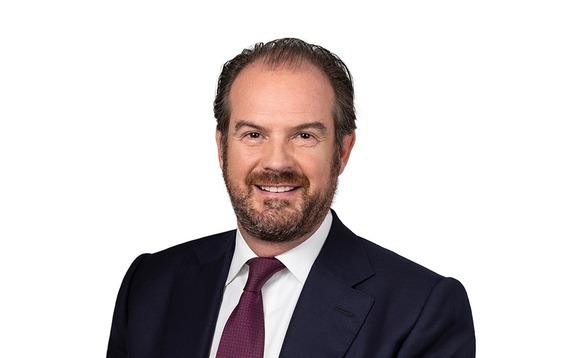
GP Profile: 17Capital eyes buoyant NAV financing market

Unquote speaks to Pierre-Antoine de Selancy, managing partner at London-headquartered 17Capital, about the firmтs strategy, growth plans, and the market landscape for its non-dilutive NAV financing strategy.
NAV-based credit and preferred equity financing provider 17Capital was founded in 2008 by de Selancy and Augustin Duhamel. The firm has offices in London and New York, with team members in Paris and San Francisco. The firm announced a strategic partnership with US-headquartered alternative asset manager Oaktree Capital Management earlier in March 2022, as reported. The deal will see Oaktree acquire a majority stake in the firm, with 17Capital continuing to operate independently and taking advantage of the opportunities presented by the partnership for its future growth.
17Capital's preferred equity financing deals see the firm provide capital in return for exposure to the cashflows from a diversified basket of, typically, at least four high-quality underlying portfolio companies, management fees, or carried interest payments, which are accrued as payment-in-kind (PIK) notes. Its credit financing generally sees the GP gain exposure to a basket of more than seven assets, typically with security, covenants, and a defined maturity date as an alternative to bank financing. Interest payments are made until the maturity date, with full payment due at the specified maturity date.
17Capital identifies around 200 deals on average per year and does 10-12 of these, de Selancy told Unquote. The GP places a great amount of emphasis on the manager itself when considering whether to proceed with a potential NAV financing deal, de Selancy said. "When we invest, the first thing we look at is the organisation, to make sure we are working with the best managers. There is always an element of chemistry; you buy into their vision of the industry and the business they are putting together." Future fundraising prospects are also a consideration, de Selancy added. "We would not work with someone who could not raise a new fund. We would provide financing for Fund n while they are deploying from Fund n+1."
Flexible solutions
Offering debt in the form of preferred equity means that the financing that 17Capital provides is non-dilutive, but the firm also offers credit, viewing each mechanism it provides as part of the overall financing landscape. "We see preferred equity and credit as a continuum, the only difference is that preferred equity is more flexible and, as such, has a higher cost of capital," de Selancy said. "Credit is more demanding in terms of diversification and loan to value, but it is more competitive in terms of cost of capital.
Half of the GP's preferred equity activity is with funds, while one third is with management companies, de Selancy said. Once the assets to which the GP has exposure are sold, the GP receives back its investment, plus the proceeds of the accrued PIK during the period.
A further area of 17Capital's offering is financing for LPs. "Providing financing to LPs is not so active at the moment – they currently represent around 15% of 17Capital's business, given that the secondaries market is doing well," de Selancy said.
However, there are still situations where LPs might need such financing. "Some LPs use leverage to build their portfolio, such as aggressive family offices or endowments," de Selancy said. "The vast majority of LPs in PE allocate cash that they have, but a small portion does not mind using leverage on their portfolio. We provide them with additional capital at the right cost, but people's approach and appetite for risk varies quite a lot."
Although less active currently, "in 2009-11, the secondaries market was not providing the right prices to investors, and so people were not happy to sell. They would raise capital on the back of their portfolio. We would provide them with money against their position to combat the discount. They might end up working with us on a portfolio twice as large as they intended originally."
Market themes
The need for flexible financing during the coronavirus pandemic has boosted the appeal and prominence of 17Capital's strategy, de Selancy said. "The pandemic has put a spotlight on what we do and there are three themes that are emerging. The financing we can provide is a growing theme in North America: people tend to invest more in the funds that they manage there. We started both preferred equity and portfolio financing in Europe, and it's a rare example of when a niche strategy like this has started in Europe and gone over to the US."
Following Oaktree's acquisition of a majority stake in the firm, and given the opportunities presented for 17Capital's strategy across the point, expansion in the US is on the cards, de Selancy told Unquote at the time of the announcement.
"The launch of new strategies is also a theme, when GPs have to put together a new team and fund it with enough management fees to cover it, then the management team has to invest in the new fund," de Selancy said. "The third theme is generation change where founders are transitioning, although that is more common in North America, where partners tend to accept buying in more easily than in Europe."
Generational change is a situation where 17Capital's financing has been relevant for some time, according to de Selancy. "We have always focused on organisations with a track record, as well as looking at their resources, strategy or changes in strategy, size of teams, and alignment," he said. "When we work at the management company level, we often provide financing to younger partners who are buying in and diluting the stakes of the managing partners."
Although the secondary market is a key source of liquidity for many sponsors and LPs, 17Capital's offering differentiates it from this market, de Selancy said. "We provide financing earlier than in a GP-led deal, at years five to 10 of a fund's lifetime. In terms of market adoption, we are just starting to see the same trend as GP-led transactions, but the size of the market is smaller. Looking at 2010-2017 vintage buyout funds in Europe and the US, there is USD 1.7trn that could be a target for our deals, and we are seeing a huge level of adoption. Five years ago, 5% of our dealflow was with the top 100 managers [by assets under management], while in 2021 they made up 80% of our dealflow. We have dealt with 10 of the 100 largest PE organisations globally and two of the 10 largest."
Strong deployment
With more than 800 fully-called buyout funds globally that could employ fund financing lines, and with LPs holding USD 1.1trn of NAV in global buyout funds with 2010-2017 vintages where liquidity could be constrained, 17Capital is bullish when it comes to the opportunities for its strategy.
The strong fundraising market anticipated for 2022, which kicked off in the second part of 2021, is also expected to drive 17Capital's deal opportunities, de Selancy said. "In H2 2021, we saw a lot of managers coming back with a new fund, raising and calling more capital, so we might see fewer distribution and more capital calls in the next 18 months. There is a deployment frenzy among PE funds: people want to invest ahead of their next fund, so they want to warehouse deals."
"Prices are high everywhere, we work with a lot of co-investors and I would not be surprised if we doubled our deployment in 2022 versus 2021," de Selancy said. The fund has an investment period of four years, however, and the GP does not intend to get carried away with the wealth of opportunities in the market. "Discipline is important: we want to stay true to our strategy and our LPs, which is the key to keeping them happy."
The GP is currently deploying equity via 17Capital 5, which held a final close in July 2021 on USD 2.9bn. 17Capital 5 is currently well over 50% deployed. The firm deployed more than USD 2.8bn over the course of 2021. The GP has typically come back to market every two to three years for a new fund, according to Unquote Data.
Incorporating ESG
17Capital has reported on ESG for its investors since 2014, de Selancy said, and has built ESG into its decision-making processes. "For our investments, we identify where the money is going. We have declined opportunities on an industry basis because the funds were going into an area that we were not happy about, such as funding coal mines. Even if the terms were good, we would not give money for this. But we have never declined an investment because we thought the governance was wrong. If the governance is wrong, the PE firm is not well run, so we would have identified that at the stage prior."
"Most of our emphasis in our deals is on the ‘E' currently, and the organisations we work with are developing differently, with some being much more advanced than others. We have hired an external consultant to help us improve ESG efforts and we are working to become a B-Corp. We are trying not to just tick boxes, and we are hiring someone to take responsibility for ESG. We don't see this as a completive process – collective thinking should improve the outcomes. We want to think ahead and talk to our GPs to see if we can collectively improve what everyone is doing individually."
In addition to incorporating ESG principles into its investment decisions, 17Capital has a long-term partnership with global charity Epic, which it hosts in its offices in London. The partnership includes providing pro bono office space, sponsoring events, and pledging to give 1% of the carried interest from 17Capital Fund 5 to Epic. The GP is also aiming to be carbon neutral at management company level.
In addition, 17Capital endeavours to promote diversity via its hiring processes, and de Selancy is optimistic about 17Capital's growth prospects. "I don't think specific macro elements would put a break on the market – inflation and interest rates will obviously have an impact, but the limit to our growth, deployment and market coverage has always been how many people we can recruit and integrate without compromising on the culture. The question is how to build the team fast enough to serve investors and the market, without compromising the culture." The firm currently has a team of 59 and could grow this by 15-20% in 2022.
Latest News
Stonehage Fleming raises USD 130m for largest fund to date, eyes 2024 programme
Sponsor acquired the public software group in July 2017 via the same-year vintage Partners Group Global Value 2017
Stonehage Fleming raises USD 130m for largest fund to date, eyes 2024 programme
Czech Republic-headquartered family office is targeting DACH and CEE region deals
Stonehage Fleming raises USD 130m for largest fund to date, eyes 2024 programme
Ex-Rocket Internet leader Bettina Curtze joins Swiss VC firm as partner and CFO
Stonehage Fleming raises USD 130m for largest fund to date, eyes 2024 programme
Estonia-registered VC could bolster LP base with fresh capital from funds-of-funds or pension funds









